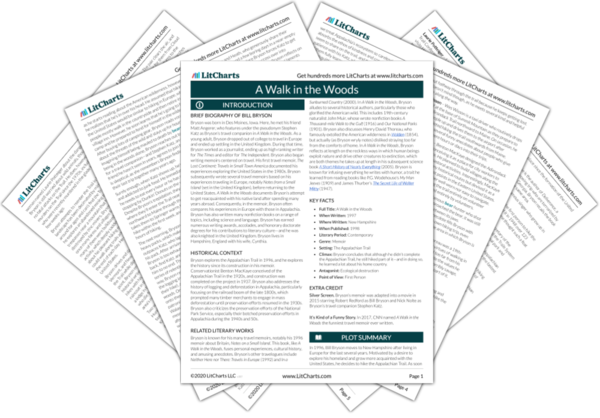LitCharts assigns a color and icon to each theme in A Walk in the Woods, which you can use to track the themes throughout the work.
Isolation, Companionship, and Kindness
Wilderness vs. Urban Sprawl
Fear, Danger, and Human Destruction
Deprivation, Comfort, and Gratitude
